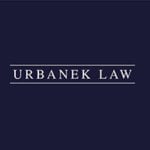-
Overview
This Comparative Guide offers insight into Nigerian laws and regulations governing the country’s real estate sector. Nigeria is a federation. It has thirty-six (36) States and a Federal Capital Territory, Abuja. The real estate sector is primarily regulated by the law of the State where the land in use is situated. Real estate located in the Federal Capital Territory, Abuja is governed by Federal statutes and regulations.
“Statutes of General Application” (laws in force in England on January 1, 1900) still apply in Nigeria to the extent that more recent Nigerian statutes have not overridden them. Nigeria was a colony of the United Kingdom prior to 1960. Nigerian land law has a complex and challenging triple heritage: English common law; Nigerian legislation; and Nigerian customary (including Islamic) law.
-
What is the main legislation relating to real estate ownership?
The main statutes governing real estate ownership in Nigeria are: (a) the Land Use Act, 1978, Chapter L5, Laws of the Federation of Nigeria, 2004 (the “Land Use Act”) and (b) the Constitution of the Federal Republic of Nigeria, 1999 (as amended) (the “Constitution”).
By the Preamble to the Land Use Act, with the exception of real estate vested in the Federal Government or any of its agencies prior to 1978, ownership of real estate in a State’s territory is vested in the Governor of the State to hold in trust (in a public law sense) for the residents of the State. The Constitution affirms the right of every Nigerian to own and acquire landed property in any part of Nigeria.
Other pertinent legislation includes the:
- English Law Conveyancing Act, 1881 (the “Conveyancing Act”) (it is a Statute of General Application in many States);
- Property and Conveyancing Laws of various States;
- Nigerian Urban and Regional Planning Act, 1992 (the “Nigerian Urban and Regional Planning Act”);
- Land Instrument Registration Laws of various States;
- Federal and States tax laws;
- Administration of Estate Laws of various States;
- English Wills Act, 1837 and the Wills laws of various States; and
- Recovery of Premises Act, 1990 and the tenancy laws of each State.
In addition to the foregoing, the laws governing real estate in Lagos State, Nigeria’s commercial capital, include (a) the Land Registration Law Cap. L41, 2015 (on title and charges registration) and (b) the Land Use Charge Law, 2022 (on tax).
-
Have any significant new laws which materially impact real estate investors and lenders come into force in the past year or are there any major anticipated new laws which are expected to materially impact them in the near future?
The Nigeria Tax Act, 2025 has been enacted as part of a broad tax reform package. It introduces wide-ranging fiscal reforms that are expected to reshape the tax landscape in Nigeria. It places all major taxes related to real estate transactions under a single law and introduces key provisions affecting the real estate sector, including rent reliefs, a new development levy, new income tax brackets for individuals and corporates, tax exemption on dividends or rental income received by real estate companies on behalf of shareholders, increased capital gains tax rate, changes to the treatment of capital gains on property sales, adjustments to VAT and stamp duty regimes, revised compliance procedures, and revised tax rules and incentives for real estate investment trusts and mortgage-related structures. These reforms have material implications for deal structuring and exit planning for real estate investors.
Further, the Investments and Securities Act, 2025, has expanded the definition of securities to include digital and tokenised assets, which has the potential to accommodate new forms of real estate financing and asset securitisation. The Insurance Industry Reform Act, 2025, has also introduced enhanced compulsory insurance requirements for construction projects and public buildings.
-
How is ownership of real estate proved and are ownership records available for public inspection?
Ownership of real estate can be proved in many ways including: (a) making and tendering in evidence written witness statements; (b) giving oral evidence in court; (c) tendering in evidence agreements and private documents of title; and (d) tendering certified true copies of public documents of title. On (a) and (b), well-established exceptions to hearsay evidence rules allow oral historical tradition to be admitted in evidence. See NUT v. Bukar (2021) LPELR-56149 (CA).
Title to real estate can be acquired in more than one way: (a) government grants by the issuance of Certificates of Occupancy, leases or otherwise; (b) transfers by private citizens executing transfer documents such as deeds of assignment, vesting deeds and deeds of gift; (c) acts of ownership such as historic occupation, long occupation, farming, constructing buildings and buying and selling land; and (d) succession by operation of law (e.g. on death).
Land ownership records are generally managed by the States land registries and are available for public inspection in some States. Access procedures, requirements and fees vary by States, and not all States have digitized records. In most cases, for access, an application is required to be made along with payment of an application fee. Unlike in several states, in the Federal Capital Territory, Abuja, the consent of the owner of the property is required before a person can undertake and obtain any information on the property from the record of the Abuja Geographic Information System Office.
Additionally, where the owner of the real estate is a company, additional information about the assets of the company, especially the existence of registered encumbrances on the property, can be accessed from the corporate records maintained at the Corporate Affairs Commission (the “CAC”) upon making a formal application and paying the requisite fee.
-
Are there any restrictions on who can own real estate, including ownership by any foreign entities?
There are possible restrictions on ownership as to minors and, at least on one view, aliens (foreigners).
By Section 7 of the Land Use Act, any person below the age of 21 (twenty-one) years cannot own real estate, except where (a) it is owned by his/her appointed guardian or trustee on his/her behalf, or (b) ownership devolved on such minor upon the death of the holder.
In Heubner v AIE & P Company Ltd., (2017) 14 NWLR (pt. 1586) 397, the Supreme Court stated that a foreigner is prohibited from acquiring and owning land in Nigeria without the prior approval of the National Council of States (“NCS”).
The statement in issue in Heubner is in fact obiter dictum in that all that was directly in issue there was an old statute in the Northern States. That statute, unlike the State law in Lagos and the rest of the Southern States in Nigeria, did not allow a State Governor to authorize foreigners to own land. A number of States have in fact enacted laws allowing alien ownership of real estate. In Lagos State, for instance, the Acquisition of Land by Aliens Law of Lagos State 1971 (“ALAL”) regulates the ownership of real estate in Lagos State by aliens.
The Constitution s. 43 provides that every citizen of Nigeria shall have the right to acquire and own immovable property anywhere in Nigeria. The Land Use Act s. 1 says that “all land in each State is vested in the Governor of that State, to be held in trust and administered for the use and common benefit of all Nigerians within that State”. The Land Use Act is technically part of the Constitution. Land Use Act s. 315(5)(d).
The Heubner dictum says that by virtue of the Land Use Act s. 1, only citizens of Nigeria are entitled to own immovable property in Nigeria. This appears to be a non sequitur. A Governor literally “h[olds]” land for the “benefit” of “Nigerians within” a “State” where he issues a Certificate of Occupancy to an alien who (like the entrepreneur in Heubner) creates jobs and will pay taxes in the State or to a Nigerian company which is controlled by such an alien (which is clearly permissible) who will also pay taxes.
In any event, the Land Use Act empowers the NCS to make regulations on “the conditions applicable to the transfer of such rights to persons who are not Nigerians”. (Land Use Act, s. 46(1)). There is, however, currently no regulation enacted by the NCS pursuant to its power under the Act.
The Governor’s consent must be obtained before any interest in real estate can be legally transferred to any person whether Nigerian or not (Land Use Act s. 22). The ALAL allows a foreigner to acquire an interest in land subject to the prior written consent of the Governor of Lagos State. Further, any transfer of an interest for less than three (3) years (including any option for renewal) will not require the Governor’s consent to be valid.
In practice, Governors do not give foreigners land for longer than twenty-five (25) years. This is in part because foreigners typically organize companies to own Nigerian land. Such companies are undoubtedly Nigerian citizens in the eye of the law even where they are controlled by foreigners.
-
What types of proprietary interests in real estate can be created?
Proprietary interests in land properly so called include statutory and deemed rights of occupancy, terms of years, easements, restrictive covenants, profits a prendre, options, mortgages and charges. We have much confused terminology and several unsupported but widely-held restrictive views here. It is important to try to be clear about these.
Possession or a right to possession of land is not necessarily a proprietary interest in law. Proprietary interests are rights in land binding third parties generally, not just a particular person or persons – in the traditional terminology, they are rights in rem rather than in personam.
Proprietary interests may or may not give rights to occupy land. Whether they do or not, they should not be confused with either the nature of the interest-disponor, the modes for transferring them, the extent of their duration in time or the nature of the relationship of the interest-holder to any other person.
On occupation, the proprietary interests that give rights to occupy land are statutory and deemed rights of occupancy and terms of years. Other proprietary interests (e.g., easements and charges) give no rights to occupy land.
A lease is a deed granting a term of years. The correct technical name for the interest granted is a term of years. The lease, properly so called, is the document under seal granting the term.
Statutory rights of occupancy are rights granted by a Governor to another to occupy land and are typically evidenced by Certificates of Occupancy. Statutory rights of occupancy are typically granted for terms certain, but no law prohibits granting a statutory right for an indefinite period.
Only Governors can grant statutory rights of occupancy. All other proprietary interests can be granted by both Governors and other disponers. No law says that rights to occupy land that, before the Land Use Act, were not limited in duration to terms certain have now been “converted” into rights for 99 years certain, but there are lawyers (not us) who maintain that such a conversion automatically occurred the moment the Land Use Act became law.
“Deemed Rights of Occupancy” is the post-Land Use Act, operation of law, label for “estates in land” (in the traditional English common law sense) acquired by holders and/or occupiers of land prior to the commencement of the Land Use Act in 1978. No legislation specifies a calendar time limit for them. However, some proponents of the theory that an automatic “conversion” occurred in 1978 argue otherwise.
An easement is the right to use the land of another for the better enjoyment of one’s own land (for example, a right of way over a neighbour’s land).
Charges and mortgages are collateral for obligations, typically but not necessarily obligations to pay money. Options to acquire interests carrying a right to occupy land are themselves proprietary interests.
A profit a prendre is a right physically to take and carry away natural physical parts of, not just flora on, another’s property. They are not important in practice because by statute, all natural minerals are owned by the Federation, not by either the States or citizens.
Restrictive covenants are covenants imposing restrictions on the use of the land of another in order to improve the enjoyment of one’s own land (e.g., that one’s neighbour should not build so high as to obstruct natural light to one’s land).
As to modes, the modes for creating or transferring proprietary interests were indicated in answers to question 4 above: e.g., deeds (including leases: a lease, strictly speaking, is a deed granting a term of years; the term of years itself is not the lease).
As to duration, both interests giving rights to occupy land and interests not giving a right to occupy land may exist either indefinitely or for times certain. These rights to occupy that are of unlimited duration are conceptually and for practical purposes equivalent to English estates in fee simple. Nevertheless, many Nigerian lawyers today say that estates in fee simple can no longer exist in Nigeria, although no statute says so.
Proprietary interests that give no right to occupy land (e.g., easements) may exist for either terms certain or unlimited times.
As to relationships, a “tenancy” is not in itself a proprietary interest but rather a relationship between two specified persons in respect of given land. Where a right of occupancy is for a term certain, we say that there is a leasehold tenancy. Where the right is for an indefinite time, we should arguably say “freehold”, but that would be a misnomer in Nigeria.
This is because Nigeria has never known true “freehold tenure” in the traditional English sense for the simple reason that “freehold” in its nature applies to land that the English monarch owns absolutely. The basic tenet of the English doctrine of tenure is that everyone with rights to occupy land is at best a tenant of the monarch under Angevin feudal custom.
The English monarchy colonized Nigeria (Lagos 1861-1960; the rest of Nigeria 1900-1960) but it very rarely ever actually owned any specific part of Nigerian land. What the English monarch had was political power over, not title ownership of, Nigerian land. Even cases decided by English judges during the colonial era say so very clearly. Eshugbayi Eleko v. The Officer Administering the Government of Nigeria (1931) AC 662, (1931) NGSC 1; Amodu Tijani Oluwa v. The Secretary, Southern Provinces (1921) 2 AC 399, (1921) NGSC 1.
-
Is ownership of real estate and the buildings on it separate?
Ownership of real estate can, but does not necessarily include ownership of buildings on the real estate. The rebuttable presumption is that the person who owns the land also owns the buildings on it (quic quid plantatur solo solo cedit), but the parties to a real estate transaction can separate the ownership of the land from that of the buildings on it by developing properly-drawn documents for that purpose.
-
What are common ownership structures for ownership of commercial real estate?
Land may be held using vehicles that are themselves owned by more than one person (e.g., companies, partnerships, trusts and estates). Land may also be held directly by more than one person under traditional common law co-ownership structures inherited from English law, such as joint tenancies, tenancies in common and tenancies by entirety. Regimes of concurrent ownership under Nigerian community, family and traditional law abound and vary from location to location. They cannot usefully be summarized here.
-
What is the usual legal due diligence process that is undertaken when acquiring commercial real estate?
Usual due diligence process steps include:
- searches at the CAC where the seller is a company;
- searches at the lands registry and other agencies of the State where the real estate is situated to identify any encumbrance or charges registered against the real estate and to confirm that all the rates and outgoings levied on the land have been fully paid up to date;
- searches at the courts registries to ascertain if there is a court proceeding involving the real estate or the judgment of a court has been made in relation to the title to the real estate;
- searches at the probate registries (with respect to inherited real estate);
- reviews of title documents to see if there are any clauses restricting the transfer or use of the land;
- for a company, reviewing its Memorandum and Articles of Association to know if the company is allowed to sell the property and whether those acting on behalf of the company have the requisite authority to do so;
- physically inspecting the real estate to see who or what is on it;
- interviews with neighbours, communities, and families to see whether there are any narratives to the effect that the seller has no right to transfer the real estate;
- making enquiries at town planning, building permits and land information offices, and States and Local Government tax units;
- making inquiries at the Surveyor-General’s office to confirm the land coordinates and verify that the land is free from government acquisition; and
- reconfirming from the State Gazette that the land is free from government acquisition.
-
What legal issues (if any) are outside the scope of the usual legal due diligence process on an acquisition of real estate?
Due diligence, no matter how well and carefully conducted, may not capture the following:
- latent title defects sometimes known to the seller and other interlocutors but not detectable through prudent inspection;
- patent or latent physical defects (one needs to hire expert consultants for these);
- unregistered interests in the real estate; and
- undisclosed litigation and arbitration (there are no reliable registers of all disputes relating to any given land).
-
What is the usual process for transfer of real estate, and when does liability pass to the buyer?
The usual stages are outlined below:
- Execution of a Contract of Sale to set out the commercial terms. At this stage, nothing more than an equitable interest can be transferred.
- Execution of a Deed of Assignment. With or without having executed a contract of sale agreement, the parties can execute a deed of assignment containing the terms and conditions of the transfer of interest. This transfers legal title in the property subject to getting the consent of the Governor and the registration of the title at the relevant State lands’ registry.
- Delivery of vacant physical possession and handover of permits, drawings, tax receipts and other documents to the buyer, typically as soon as the seller is paid.
- Paying the fees for and obtaining consent to the transfer from the Governor (urban land) or a local government (rural land). Land Use Act, ss. 21 and 22. The Governor’s consent will not be required where: (i) the approval of a local government authority, as distinct from the Governor, is sufficient; (ii) a legal mortgage is created in favour of the holder of a previously-created equitable mortgage over which the Governor’s consent had been obtained; (iii) there is a reconveyance or release of mortgaged real estate by a mortgagee to a mortgagor provided that the Governor’s consent had been obtained when the mortgage was created. (Land Use Act, ss. 21(b); 22(1)(a)-(b)); or (iv) there is devolution on death. It must be noted that the Governor’s consent will be needed for the renewal of a Deed of Sub-Lease with an Option to Renew Clause. Land Use Act, s. 22(1)(c).
- Stamping of the Deed of Assignment. Every agreement needs to be stamped to be admissible in evidence. Stamp Duties Act, Cap S8, Laws of the Federation of Nigeria, s. 23.
- Payment of registration fees and the registration of the title. Registration, as required by each State’s Land Instrument Registration Law, typically comes last. Prior to actual registration, the transaction will typically be assessed to Federal capital gains tax and other applicable State taxes and/or levies such as ground rent. An application for registration is usually, by the demand of registration authorities, accompanied by documents such as the income tax clearance certificates of the parties and a formal application for the Governor’s consent in the regulatorily stipulated form.
- Liability in the transfer of real estate typically passes to the buyer upon the completion of the transaction, which is usually upon the execution of the deed of assignment and the delivery of vacant possession of the property. The transfer of liability may also be staged, for example, the parties may agree that certain liability will remain with the seller after the execution of a contract of sale and would only pass upon the execution of the deed of assignment or after the registration of the buyer’s title has been completed, or even upon satisfaction of some conditions in the deed of assignment.
-
Is it common for real estate transfers to be effected by way of share transfer as well as asset transfer?
Yes. It is common for real estate transfers to be effected by way of transferring shares in the company owning the real estate, but direct asset transfers are more often used than such share transfers.
-
On the sale of freehold interests in land does the benefit of any occupational leases and income derived from such lettings automatically transfer to the buyer?
Yes, terms of years and rent chargeable in respect of such terms automatically transfer on the sale of land where the seller’s right has not yet expired in time. However, it appears in strict law to be a misnomer to talk of “freehold” land in Nigeria, although deemed rights of occupancy are “freehold” for all practical and conceptual purposes. See our response to question 6.
-
What common rights, interests and burdens can be created or attach over real estate and how are these protected?
The common and other interests that may subsist in land are set out under question 6 above. They may be protected by registration, by taking physical possession, and by making court claims for monetary compensation, declarations of title, injunctions, and the rectification of documents and registry entries.
-
Are split legal and beneficial ownership of real estate (i.e. trust structures) recognised?
Yes. Nigerian law inherited the rules of common law and equity (including trusts) from the English.
-
Is public disclosure of the ultimate beneficial owners of real estate required?
No, there are no legal obligations for the disclosure of the ultimate beneficial owners of real estate. Indeed, not all land title registers are open to public inspection. Depending on the location and State, one who seeks knowledge of the contents of the register may well have to make do with an official report of a search carried out by the registry officials and with no formal guarantee of its accuracy.
-
What are the main taxes associated with real estate ownership and transfer of real estate?
Taxes associated with real estate ownership and transfer include:
- Capital gains tax, imposed by the Federal Government but collected by the States, at the rate of 10%;
- Stamp duty at ad valorem rates ranging from 0.075% to 1.5% (payable on executed real estate transfer documents);
- Registration and consent fees at rates, typically ranging from 2% to 4% but varying from time to time and from State to State (payable during the perfection of title to the property);
- Value-added tax (“VAT”) at the rate of 7.5% on rent payable by the lessee under a business lease and also on fees charged by professionals advising on real estate transactions. (Other than in these instances, the transfer of real estate is not subject to VAT. The Finance Act, 2020 excludes interests in land from VAT);
- Withholding tax at the rate of 10% (by a lessee in a lease from the rent and remitted to the relevant tax authority);
- Land use charge/tenement rate (paid on occupied and developed real estate used for private purposes);
- Ground rent (paid on both developed and undeveloped real estate);
- Neighbourhood levies; and
- Development levies. The rates and amounts of taxes in all of (f) – (i) vary greatly from State to State.
-
What are common terms of commercial leases and are there regulatory controls on the terms of leases?
It is usual to have terms granting the lessee exclusive possession, specifying rent, and providing for the periodic review of rent and options to renew the term.
Other terms commonly seen in commercial leases relate to insurance, repair, prohibiting use for illegal purposes, specifying use as either commercial or residential, subletting and/or assigning and/or parting with possession, access to and use of common areas/facilities, improvements and changes to physical structure, noise and nuisance, taxes or other fees arising, maintenance, diesel for electric power, security deposits against damage, service charges and forfeiture for breach.
There is virtually no regulatory control of price or other terms in commercial leases. However, the Lagos State Tenancy Law 2011, section 4, for instance, makes it unlawful for a landlord or his agent to demand or receive from a new tenant rent for a period in excess of 1 year for a yearly tenant or in excess of 6 months for a monthly tenant in respect of any premises. It is likewise unlawful for the new tenant to offer or pay rent for a period in excess of 1 year or 6 months (as the case may be). The penalty for both the landlord and tenant involved in such an arrangement is a fine of N100,000 (approx. USD69.5) or 3 months imprisonment.
-
What remedies are commonly available for landlords in the event of a tenant breach of a commercial lease?
The remedies available to a landlord in the event of a tenant breach depend on the covenant breached. Where the covenant breached relates to the payment of rent, the landlord’s remedy may be in the form of (a) an action for forfeiture, (b) an action for arrears of rent, or (c) distraining for rent. Forfeiture allows the landlord to terminate the lease and regain possession of the property. It is important to note that (i) this remedy is triggered only when there is a clause in the lease to that effect and (ii) the landlord must have made a formal demand for the rent due from the tenant where the requirement of actual demand has not been contracted out by the parties. Where there is no clause in the lease to that effect, landlords typically have to institute an action in court to re-enter the premises and determine the tenancy. See Section 12, Lagos State Tenancy Law 2011.
Where the covenant breached is one against assignment, subletting or parting with possession, the remedies available to the landlord are either damages for breach of the covenant or forfeiture of the lease. To successfully pursue damages, the landlord must demonstrate that he has suffered or would suffer loss from the tenant’s actions or inactions.
A breach of other covenants empowers the landlord to sue for damages, injunctions (to prevent further breaches or compel compliance with lease terms), specific performance of the covenant, or forfeiture of the lease/tenancy.
-
How are use, planning and zoning restrictions on real estate regulated?
Use, planning, and zoning restrictions on real estate are regulated by (a) Federal environmental law, especially the Environmental Impact Assessment Act, 1992, (b) States statutes and regulations on planning, (c) regulations on town planning and zoning, (d) building permits regulations, and (e) granting instruments from States governments (e.g. Certificates of Occupancy).
Under the Nigerian Urban and Regional Planning Act, the Federal, State, and Local Governments have responsibilities regarding development plans. Nigerian Urban and Regional Planning Act, ss. 2, 3, and 4. The Nigerian Urban and Regional Planning Act also established (i) the Nigerian Urban and Regional Planning Commission to formulate national policies for urban and regional planning, (ii) a State Urban and Regional Planning Board in each State in Nigeria and the Federal Capital Territory, Abuja to formulate State policies for urban and regional planning, and (iii) a Local Planning Authority in each Local Government and area council to prepare plans and undertake developments within its territory.
The Nigerian Urban and Regional Planning Act provides for permits and approvals that must be obtained for the development of real estate. In addition, each State also has agencies responsible for regulating the development of real estate to balance the community’s interest and the need to protect the environment against personal interests. For example, in Lagos State the Lagos State Physical Planning Permit Authority grants planning permits as well as zoning approvals for all physical developments on land in the State, while the Lagos State Building Control Agency grants building permits. These permits and approvals often provide conditions which the applicant is required to comply with.
The use of real estate is also controlled by the Certificate of Occupancy (“C of O”), which is a statutory instrument of title granted by a State Governor as evidence of the holder’s statutory right of occupancy to the land (see Land Use Act, s. 5). The C of O issued for a parcel of land typically sets out covenants and restrictions on use to be honoured by the holder of the C of O.
One of such major and usual restrictions is in respect of the length of time for which construction on the land may be delayed. Cs of O issued in Lagos State typically require the holder of the C of O to start building a permanent structure on the land within two (2) years from the commencement of the statutory right of occupancy for the land. Such development must be done in line with applicable physical planning and building regulations.
The C of O typically outlines the specific purpose(s) for which the land may be used. It also usually provides for the payment of specified land taxes, rates, and outgoings on the land. Failure to comply with the covenants in the C of O may lead to the revocation of the holder’s right of occupancy over the land.
-
Who can be liable for environmental contamination on real estate?
In Nigeria, liability for the environmental contamination of real estate can arise under a number of statutes and under the common law (case law). Liability typically attaches to the person responsible for the contamination.
Common law: The most obvious causes of action are in nuisance, negligence, and the Rylands v. Fletcher rule, for example, for pollutants that have escaped onto neighbouring land. Responsibility arises from the possession, control, and use of the land where the contamination originated, and liable parties can include a combination of owners, occupiers, and other polluters such as contractors and operators.
Federal Statute: The Harmful Waste (Special Criminal Provisions, etc.) Act 1988 s. 1, provides that any person who, without lawful authority: (a) carries, deposits, dumps, or causes to be carried, deposited or dumped, or is in possession for the purpose of carrying, depositing or dumping, any harmful waste on any land or in any territorial waters or its inland waterways; or (b) transports or causes to be transported or is in possession for the purpose of transporting any harmful waste; or (c) imports or causes to be imported or negotiates for importing any harmful waste; or (d) sells, offers for sale, buys or otherwise deals in any harmful waste, shall be guilty of a crime under the Act.
For oil and gas spillage, under the Environmental Guidelines and Standards for the Petroleum Industry in Nigeria, the person causing the spillage will be directly liable for the contamination, its removal, and the payment of compensation to victims.
State Statutes: These vary from State to State. For instance, in Lagos State, waste management is controlled by the Lagos State Waste Management Authority (LAWMA), established under the Lagos State Waste Management Authority Law, 2015. LAWMA issues licences for waste disposal and collection operations. There is also a penalty for unlawful waste disposal and the contamination of the environment by improper waste disposal.
-
Are buildings legally required to have their energy performance assessed and in what (if any) situations do minimum energy performance levels need to be met?
Assessments of the energy performance of buildings are not commonly carried out in Nigeria. They are not yet required or regulated by law, but the law certainly does not prohibit them. For new buildings that purport to be truly “green”, both contract law and the law against misrepresentation sanction the making of false or misleading claims.
-
Is expropriation of real estate possible?
Yes, but it must be for a permissible public purpose, following the stipulated legal procedure, and with adequate compensation. There are three (3) sets of rules in it. One is in the Land Use Act (compensation only for buildings). Another is in the Nigerian Investment Promotion Commission Act, 1995. The third is in the Constitution itself. These latter two statutes insist on compensation generally and do not exclude compensation for bare land.
There are Federal statutes purporting to empower the Federal Government to acquire land compulsorily at locations outside the Federal Capital Territory. The better view is that such statutes are unconstitutional and void, and that only States can enforce such laws. Land is a state matter, and the Land Use Act vests the ultimate title to land in the State Governors and not in the Federal Government.
-
Is it possible to create mortgages over real estate and how are these protected and enforced?
Mortgages can be created over real estate. A mortgage can be either legal or equitable. Mortgages are protected by the perfection of the mortgage and registration with the relevant authorities. For instance, a land mortgage entered into by a company as the mortgagor needs to be registered at both the CAC (to bind creditors) and the land registry of the State where the land is situated (mainly to bind purchasers). The mortgagee typically makes and prosecutes the perfection filing itself, usually charging the perfection costs to the mortgagor.
Ways of creating legal and equitable mortgages vary under the States’ laws. A legal mortgage can be created by (i) transfer of the legal title in the mortgaged property to the mortgagee, (ii) charging the land by deed either by way of legal mortgage or statutory mortgage; or (iii) vesting a term of years over the land by way of security.
On the other hand, an equitable mortgage can be created (i) by a direct charge of the mortgagor’s property, (ii) as a result of failure to perfect a legal mortgage (that is, failure to obtain either Governor’s consent, stamping, or registration), or (iii) upon an agreement or contract to create a legal mortgage accompanied by a deposit of the title document(s) to the property.
Where there is a breach by the mortgagor, the mortgagee has several remedies. One of them is the exercise of the power of sale so far as the power of sale has both arisen and become exercisable. The power of sale would have arisen where (i) the mortgage is made by deed, (ii) the legal date of redemption by the mortgagor has elapsed, and (iii) there is no contrary provision in the mortgage deed that prevents the exercise of a power of sale.
For the power of sale to have become exercisable, the mortgagor must have (a) failed to pay within 3 (three) months of service of notice to pay, or (b) failed to pay for 2 (two) consecutive months after it has become due, and/or (c) the mortgagor has breached a fundamental term of the mortgage.
Other remedies are:
- Actions in court for the recovery of the principal sum and interest.
- Actions in court for the recovery of possession (only a legal mortgagee has this remedy, not, e.g., a chargee).
- Where a company is the mortgagor, the appointment of a receiver over the real estate.
- Where a company is the mortgagor, an action for the winding up of the company if (a) the amount due is above ₦200,000, the equivalent of about USD139, and (b) three (3) weeks have elapsed after service of a demand notice by the mortgagee on the mortgagor. Companies and Allied Matters Act, ss. 571(d) and 572(a).
- Applications for foreclosure orders of the Court to vest the mortgaged property in the mortgagee beneficially.
- Actions in court for orders of specific performance of the obligation to convey the legal title to the mortgagee (this relief is only available to an equitable mortgagee).
-
Are there material registration costs associated with the creation of mortgages over real estate?
Yes, registration costs attend mortgages in Nigeria. The key costs associated with the perfection of a mortgage in real estate are the Governor’s consent fee, stamp duties and registration fees. Stamp duties for a legal mortgage are charged ad valorem at the rate of 0.375% of the value of the facility. Governor’s consent fees and registration fees are fixed by each State’s laws at rates typically ranging from 2% to 4% of the value of the real estate as officially assessed by the State. In some states, the assessment may include other charges such as administrative fees, validation fees, release fees, and arrears of ground rents as well as penalties for late payment, if any. Registration at the CAC, where the borrower is a company, is required by law and will typically attract fees at the rate of 0.35% of the amount secured.
-
Is it possible to create a trust structure for mortgage security over real estate?
Yes, it is. Where there is more than one lender under the security covered by the mortgage, the usual practice is to engage a security trustee who will hold the security on behalf of all of the lenders as the beneficiaries. This way, the security trustee will have the right to enforce the security on behalf of all the lender beneficiaries. Typically, under the agreed documentation, the trustee will have no option to delay enforcement where two-thirds of the lenders insist on enforcement.
Nigeria: Real Estate
This country-specific Q&A provides an overview of Real Estate laws and regulations applicable in Nigeria.
-
Overview
-
What is the main legislation relating to real estate ownership?
-
Have any significant new laws which materially impact real estate investors and lenders come into force in the past year or are there any major anticipated new laws which are expected to materially impact them in the near future?
-
How is ownership of real estate proved and are ownership records available for public inspection?
-
Are there any restrictions on who can own real estate, including ownership by any foreign entities?
-
What types of proprietary interests in real estate can be created?
-
Is ownership of real estate and the buildings on it separate?
-
What are common ownership structures for ownership of commercial real estate?
-
What is the usual legal due diligence process that is undertaken when acquiring commercial real estate?
-
What legal issues (if any) are outside the scope of the usual legal due diligence process on an acquisition of real estate?
-
What is the usual process for transfer of real estate, and when does liability pass to the buyer?
-
Is it common for real estate transfers to be effected by way of share transfer as well as asset transfer?
-
On the sale of freehold interests in land does the benefit of any occupational leases and income derived from such lettings automatically transfer to the buyer?
-
What common rights, interests and burdens can be created or attach over real estate and how are these protected?
-
Are split legal and beneficial ownership of real estate (i.e. trust structures) recognised?
-
Is public disclosure of the ultimate beneficial owners of real estate required?
-
What are the main taxes associated with real estate ownership and transfer of real estate?
-
What are common terms of commercial leases and are there regulatory controls on the terms of leases?
-
What remedies are commonly available for landlords in the event of a tenant breach of a commercial lease?
-
How are use, planning and zoning restrictions on real estate regulated?
-
Who can be liable for environmental contamination on real estate?
-
Are buildings legally required to have their energy performance assessed and in what (if any) situations do minimum energy performance levels need to be met?
-
Is expropriation of real estate possible?
-
Is it possible to create mortgages over real estate and how are these protected and enforced?
-
Are there material registration costs associated with the creation of mortgages over real estate?
-
Is it possible to create a trust structure for mortgage security over real estate?





























